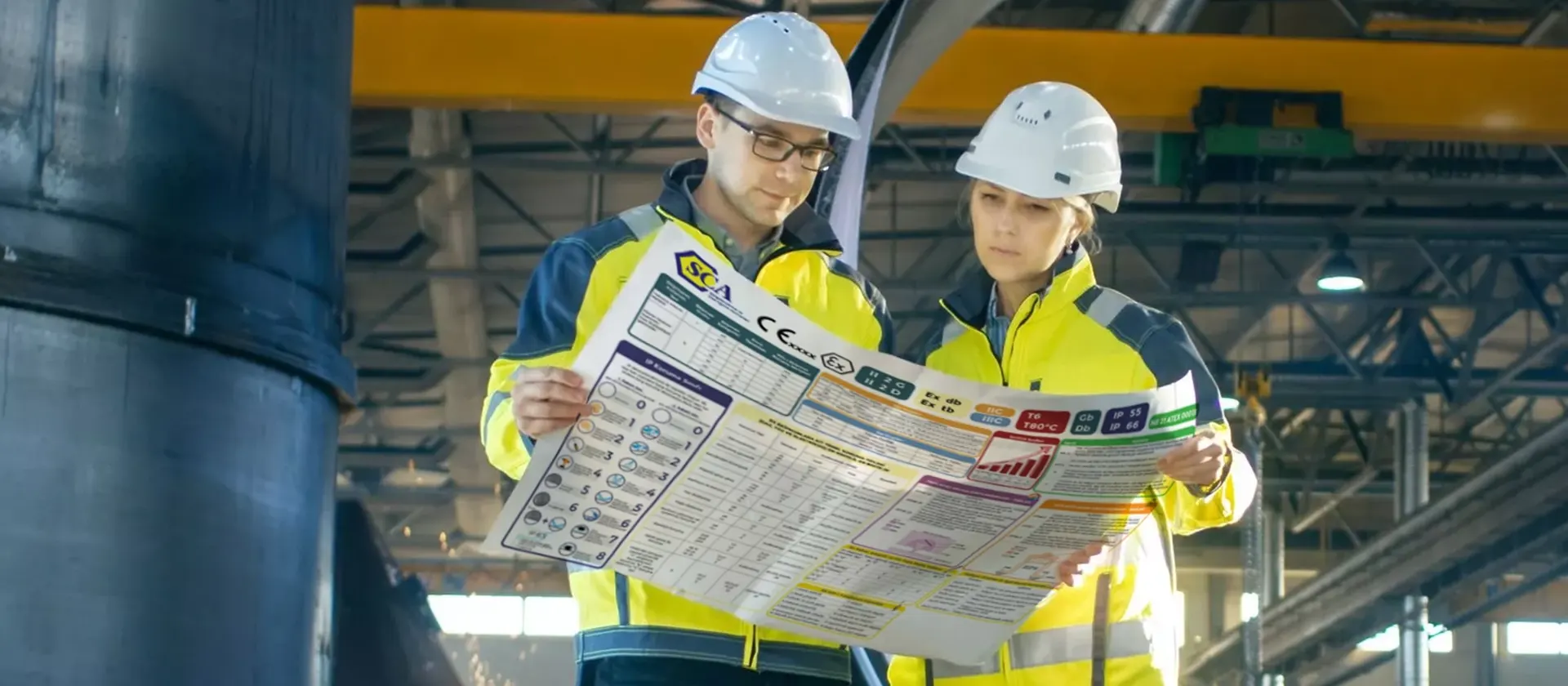ISO 17781 Duplex Stainless Steel Certification Testing
The ISO 17781 standard is a key specification for duplex stainless steel, used in various industries such as petrochemicals, marine engineering, and aerospace. This certification testing ensures that materials meet the stringent requirements of this standard, which guarantees high resistance to chloride stress corrosion cracking (SCC) and good mechanical properties.
Our laboratory uses advanced analytical techniques including optical emission spectroscopy (OES), scanning electron microscopy (SEM), and energy-dispersive X-ray spectroscopy (EDX). These methods provide precise chemical composition analysis essential for meeting ISO 17781's stringent requirements. We also employ mechanical testing such as tensile, impact, and hardness tests to evaluate the mechanical properties of materials.
The process begins with specimen preparation where we ensure that samples are representative of the material being tested. Specimens undergo chemical analysis to confirm compliance with ISO 17781's chemical composition requirements. Next comes mechanical testing which includes tensile strength measurements, impact toughness assessments, and hardness determinations. These tests help us determine whether the material possesses the necessary properties demanded by the standard.
Following these initial checks, we conduct more detailed analyses using advanced analytical techniques like SEM/EDX to examine grain structure and phase distribution. This information is crucial for identifying any potential issues related to composition or microstructure that could affect performance under specific operating conditions.
In addition to laboratory tests, our facility also offers field testing services where samples are taken directly from production environments or end-use applications. This approach ensures that the materials behave consistently across all stages of their lifecycle—from manufacturing through operation and maintenance phases.
Our team of experienced metallurgists and materials scientists interprets results based on international standards including ISO 17781, ASTM A240, EN 10306-5:2019, and others relevant to duplex stainless steels. They provide detailed reports outlining compliance findings along with recommendations for further action if necessary.
By adhering strictly to these standards during our certification testing process, we ensure that manufacturers can confidently meet customer expectations while complying with regulatory requirements worldwide.
Scope and Methodology
- Compliance Analysis: We analyze samples according to ISO 17781, ensuring they conform to specified chemical compositions and mechanical properties.
- Chemical Composition: Using OES, SEM/EDX, we verify that the sample meets all chemical requirements set forth by ISO 17781.
- Mechanical Testing: Tensile tests measure ultimate tensile strength and elongation. Impact testing assesses notch toughness while hardness tests provide information about surface hardness.
- Grain Structure Analysis: SEM/EDX helps us understand the grain structure and phase distribution within the material, providing insights into its microstructure.
- Field Sampling: For real-world applications, we can take samples directly from production lines or installations for additional verification.
- International Standards: ISO 17781, ASTM A240, EN 10306-5:2019 are among the standards we follow closely during our testing process.
- Reporting: Detailed reports include compliance results and recommendations based on international standards.
Why Choose This Test
- Enhanced Reliability: By ensuring strict adherence to ISO 17781, we enhance the reliability and durability of materials used in critical applications.
- Compliance Assurance: Our testing ensures that your products meet all necessary regulatory requirements worldwide.
- Risk Mitigation: Testing helps identify potential risks early on, allowing for corrective actions before they become major issues.
- Quality Control: Consistent performance across different environments is guaranteed through rigorous testing and analysis.
- Expertise: Leveraging our team of experienced metallurgists and materials scientists ensures accurate interpretation of results based on recognized standards.
- Cost Efficiency: Early identification of non-compliance saves costs associated with rework or replacement later in the process.
The ISO 17781 certification testing provides peace of mind knowing that your materials are up to par with industry best practices and regulatory requirements. It offers assurance not only for current projects but also future ones, ensuring long-term success and sustainability.
Quality and Reliability Assurance
- Stringent Standards Compliance: Our laboratory strictly adheres to ISO 17781, ASTM A240, EN 10306-5:2019, ensuring compliance with all relevant international standards.
- Instrumentation Precision: We use state-of-the-art equipment such as OES, SEM/EDX, tensile testing machines, impact testers, and hardness testers to ensure accurate measurements.
- Representative Specimens: Every sample is prepared carefully to represent the actual material being tested, ensuring reliable results.
- Comprehensive Analysis: From initial checks through detailed analyses, we cover every aspect required by ISO 17781 to guarantee comprehensive evaluation.
- Field Testing Capabilities: Our team can take samples directly from production environments or end-use applications for additional verification.
- Interpretation of Results: Our experienced metallurgists and materials scientists provide expert interpretation based on international standards, ensuring accurate reporting.
- Consistency Across Environments: Real-world performance is guaranteed through rigorous testing and analysis under various conditions.
- Early Identification of Issues: Potential problems are identified early in the process, allowing for timely corrective actions to maintain quality standards.
- Sustainability Focus: Ensuring compliance with ISO 17781 contributes to long-term sustainability by promoting reliable and durable materials.
Our commitment to quality and reliability is reflected in every step of our certification testing process. By choosing us, you ensure that your materials not only meet current standards but also set a benchmark for future performance.





